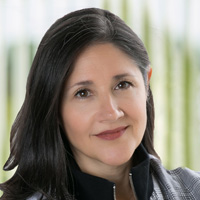The Next Silicon Valley Must-Have? A Private Foundation
Today’s wealthy tech crowd is steering more toward philanthropy than conspicuous consumption, and a private foundation gives them the power (and the control they are looking for) to make a difference.


Profit and prosper with the best of Kiplinger's advice on investing, taxes, retirement, personal finance and much more. Delivered daily. Enter your email in the box and click Sign Me Up.
You are now subscribed
Your newsletter sign-up was successful
Want to add more newsletters?

Delivered daily
Kiplinger Today
Profit and prosper with the best of Kiplinger's advice on investing, taxes, retirement, personal finance and much more delivered daily. Smart money moves start here.

Sent five days a week
Kiplinger A Step Ahead
Get practical help to make better financial decisions in your everyday life, from spending to savings on top deals.

Delivered daily
Kiplinger Closing Bell
Get today's biggest financial and investing headlines delivered to your inbox every day the U.S. stock market is open.

Sent twice a week
Kiplinger Adviser Intel
Financial pros across the country share best practices and fresh tactics to preserve and grow your wealth.

Delivered weekly
Kiplinger Tax Tips
Trim your federal and state tax bills with practical tax-planning and tax-cutting strategies.

Sent twice a week
Kiplinger Retirement Tips
Your twice-a-week guide to planning and enjoying a financially secure and richly rewarding retirement

Sent bimonthly.
Kiplinger Adviser Angle
Insights for advisers, wealth managers and other financial professionals.

Sent twice a week
Kiplinger Investing Weekly
Your twice-a-week roundup of promising stocks, funds, companies and industries you should consider, ones you should avoid, and why.

Sent weekly for six weeks
Kiplinger Invest for Retirement
Your step-by-step six-part series on how to invest for retirement, from devising a successful strategy to exactly which investments to choose.
While the pandemic might have shuttered businesses across the country, Silicon Valley tech companies have defied the odds. In 2020, IPO capital raising hit its highest level in a decade. Start-up valuations soared, and blockbuster IPOs, like the one for Airbnb, created a bumper crop of wealth. But unlike previous iterations of newly minted money, the beneficiaries of this recent boom are forsaking the traditional private-island-and-jet splurge. Their new acquisition of choice could be a more charitable one.
Last year my company helped set up more new foundations than at any other time in our 20-year history – many for tech entrepreneurs and business owners planning for a liquidity event. And we expect that the ongoing wave of IPOs could fuel a surge in private foundation philanthropy, even as Brookings, NPR and others have documented a decline in spending among America’s most affluent households during the past year.
What, No Gold-Plated Yacht?!
Boom times in Silicon Valley used to be marked by lavish displays of excess, including the now-legendary wedding of Napster co-founder Sean Parker whose 2013 “Lord of the Rings” nuptials cost $4.5 million and featured a 9-foot-high cake and guest apparel by the film’s costume designer. So, why aren’t the beneficiaries of the current boom acquiring sharks with laser beams and other accessories for Bond-villain subterranean lairs?
From just $107.88 $24.99 for Kiplinger Personal Finance
Become a smarter, better informed investor. Subscribe from just $107.88 $24.99, plus get up to 4 Special Issues

Sign up for Kiplinger’s Free Newsletters
Profit and prosper with the best of expert advice on investing, taxes, retirement, personal finance and more - straight to your e-mail.
Profit and prosper with the best of expert advice - straight to your e-mail.
One possibility is that economic uncertainty has put a damper on lavish displays of conspicuous consumption. As recently reported in The Wall Street Journal, the so-called “smart money” is bearish on companies that have gone public through special purpose acquisition vehicles (SPACs). Short-sellers have increased their bets to more than triple their value at the start of the year, rising from $724 million to about $2.7 billion. And broadly speaking, no one is sure whether the post-COVID economy will be characterized by unprecedented growth or inflation and sluggish employment rates.
Other factors, however, may be inspiring Silicon Valley’s latest crop of millionaires to seek gratification in philanthropy instead of consumerism:
Heightened awareness of increased need: While the gap between America’s haves and have-nots has been widening for decades, the gulf grew even wider during the pandemic. The weight of the crisis fell unequally on the vulnerable, with millions of Americans unable to afford or access even essentials such as food, health care, housing and broadband. Against a backdrop of endless lines for food pantries — even on military bases — extravagant displays of wealth may seem insensitive as well as immoderate.
An attitude of gratitude: Aaron Rubin, a partner at Werba Rubin Papier Wealth Management, told The New York Times that this boom feels qualitatively different from previous ones. In addition to experiencing unease about the economy, his clients are expressing “more gratitude” and making more plans for charity.
Social crisis: In addition to COVID, racial equity, social justice and the political environment were at the fore of our national conversation. These topics got people thinking about how they could use their assets to influence society positively.
Generational generosity: Many Silicon Valley “techies” are Millennials. Fidelity Charitable’s survey, Entrepreneurs as Philanthropists, shows that in comparison to other generations, Millennials are relatively more philanthropic, more concerned about using their social capital and purchasing power to improve the world, and more interested in aligning their actions with their ideals. And they’ve been very responsive to the increased need as of late.
Additionally, nearly three-quarters of Millennials have sent financial aid to family or friends or donated to a nonprofit since the pandemic began, according to payment app Zelle’s September Consumer Payment Behaviors report. That’s the highest rate among any of the generations polled.
The Tesla of Charitable Vehicles
It’s easy to see how the next wave of entrepreneurial business IPOs could fuel an explosion of interest in philanthropy; what’s less clear is how that interest will manifest. Although Silicon Valley has a very robust community foundation that serves the surrounding vicinity, not all of its Millennial philanthropists are likely to be content with solely meeting need locally. Nor may they be satisfied with giving only through a donor-advised fund (DAF), which, while popular for its tax advantages and ease of set-up, does not offer donors much say over their giving.
Consider these critical insights to how Millennials approach their giving, noted by the Fidelity Charitable survey:
- While they are more likely than other generations to see giving as part of their identity, they also may have lower levels of trust in the nonprofits they support and are more likely to want to be actively engaged in the direction and use of their financial support.
- Younger entrepreneurs see charitable giving as a way to build their reputation, with 84% saying they value giving as an opportunity to demonstrate leadership in the community.
- Seventy-four percent value having their contributions recognized publicly, compared to only 19% of Boomers.
- Millennial business owners are already planning their charitable legacies; nearly two-thirds plan to leave money to charity after they’re gone, versus 46% of Boomers.
The same study also notes that “Younger entrepreneurs are going beyond simple cash donations — both personally and in their businesses — and are giving in increasingly sophisticated ways.”
For all these reasons, a private foundation, which confers complete donor control and offers an almost limitless toolbox for creative giving, might emerge as the preferred charitable vehicle for this new class of donors who crave hands-on, out-of-the box philanthropy.
In addition to granting to publicly supported nonprofits, the type of giving permitted with a DAF, a private foundation is empowered to:
- Give directly to individuals in need.
- Make loans to charitable organizations and use the proceeds from the repayments to make other programmatic investments.
- Invest in for-profit businesses to further a charitable purpose.
- Conduct its own charitable programs and activities.
- Give awards and prizes to spur progress.
- Enter into binding agreements with grant recipients to ensure they use the funds as intended.
- Dictate naming rights as part of a grant agreement and enforce adherence.
- Deliver grant checks in person (e.g., at a fundraising gala).
- Follow any investment strategy that complies with prudent investor rules.
Moreover, because a private foundation can be established to exist in perpetuity, handed down from one generation to the next, it might have a special appeal for techies who are intent on building an enduring personal legacy associated with lifelong philanthropy and social impact.
For some great examples of charitable efforts made through private foundations, visit here.
Foundation Source is the nation’s largest provider of management solutions for private foundations. We empower people and companies to create a better world with their philanthropy through a configurable suite of administrative, compliance, and advisory services complemented by purpose-built foundation management technology and private foundation experts. As we celebrate our 20th year of service, Foundation Source supports nearly 2,000 family, corporate and professionally staffed foundations of all sizes and has enabled more than $7 billion in charitable grants. ©2021 Foundation Source Philanthropic Services, Inc. All rights reserved.
Profit and prosper with the best of Kiplinger's advice on investing, taxes, retirement, personal finance and much more. Delivered daily. Enter your email in the box and click Sign Me Up.

Hannah Shaw Grove is the chief marketing officer of Foundation Source, founder of "Private Wealth" magazine and author of 11 data-based books and hundreds of reports and articles on topics relating to the creation, management, disposition and transfer of wealth. Hannah has previously been the chief marketing officer at Apex Clearing, iCapital Network and Merrill Lynch Investment Managers and is a cum laude graduate of Harvard University. She holds the FINRA Series 6, 7, 24, 26 and 63 licenses.
-
 5 Vince Lombardi Quotes Retirees Should Live By
5 Vince Lombardi Quotes Retirees Should Live ByThe iconic football coach's philosophy can help retirees win at the game of life.
-
 The $200,000 Olympic 'Pension' is a Retirement Game-Changer for Team USA
The $200,000 Olympic 'Pension' is a Retirement Game-Changer for Team USAThe donation by financier Ross Stevens is meant to be a "retirement program" for Team USA Olympic and Paralympic athletes.
-
 10 Cheapest Places to Live in Colorado
10 Cheapest Places to Live in ColoradoProperty Tax Looking for a cozy cabin near the slopes? These Colorado counties combine reasonable house prices with the state's lowest property tax bills.
-
 Don't Bury Your Kids in Taxes: How to Position Your Investments to Help Create More Wealth for Them
Don't Bury Your Kids in Taxes: How to Position Your Investments to Help Create More Wealth for ThemTo minimize your heirs' tax burden, focus on aligning your investment account types and assets with your estate plan, and pay attention to the impact of RMDs.
-
 Are You 'Too Old' to Benefit From an Annuity?
Are You 'Too Old' to Benefit From an Annuity?Probably not, even if you're in your 70s or 80s, but it depends on your circumstances and the kind of annuity you're considering.
-
 In Your 50s and Seeing Retirement in the Distance? What You Do Now Can Make a Significant Impact
In Your 50s and Seeing Retirement in the Distance? What You Do Now Can Make a Significant ImpactThis is the perfect time to assess whether your retirement planning is on track and determine what steps you need to take if it's not.
-
 Your Retirement Isn't Set in Stone, But It Can Be a Work of Art
Your Retirement Isn't Set in Stone, But It Can Be a Work of ArtSetting and forgetting your retirement plan will make it hard to cope with life's challenges. Instead, consider redrawing and refining your plan as you go.
-
 The Bear Market Protocol: 3 Strategies to Consider in a Down Market
The Bear Market Protocol: 3 Strategies to Consider in a Down MarketThe Bear Market Protocol: 3 Strategies for a Down Market From buying the dip to strategic Roth conversions, there are several ways to use a bear market to your advantage — once you get over the fear factor.
-
 For the 2% Club, the Guardrails Approach and the 4% Rule Do Not Work: Here's What Works Instead
For the 2% Club, the Guardrails Approach and the 4% Rule Do Not Work: Here's What Works InsteadFor retirees with a pension, traditional withdrawal rules could be too restrictive. You need a tailored income plan that is much more flexible and realistic.
-
 Retiring Next Year? Now Is the Time to Start Designing What Your Retirement Will Look Like
Retiring Next Year? Now Is the Time to Start Designing What Your Retirement Will Look LikeThis is when you should be shifting your focus from growing your portfolio to designing an income and tax strategy that aligns your resources with your purpose.
-
 I'm a Financial Planner: This Layered Approach for Your Retirement Money Can Help Lower Your Stress
I'm a Financial Planner: This Layered Approach for Your Retirement Money Can Help Lower Your StressTo be confident about retirement, consider building a safety net by dividing assets into distinct layers and establishing a regular review process. Here's how.